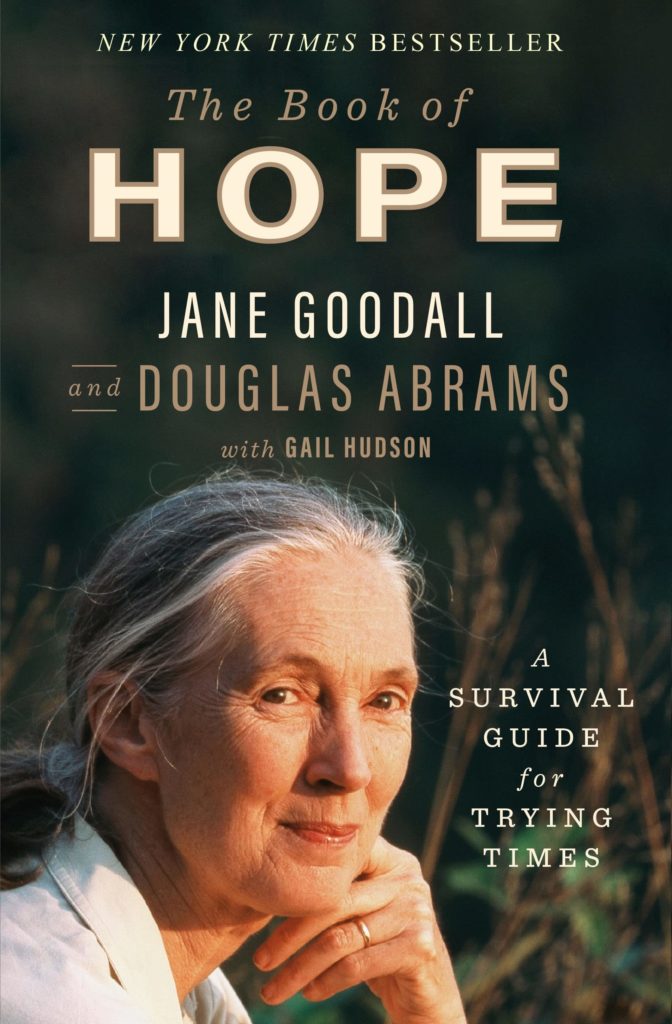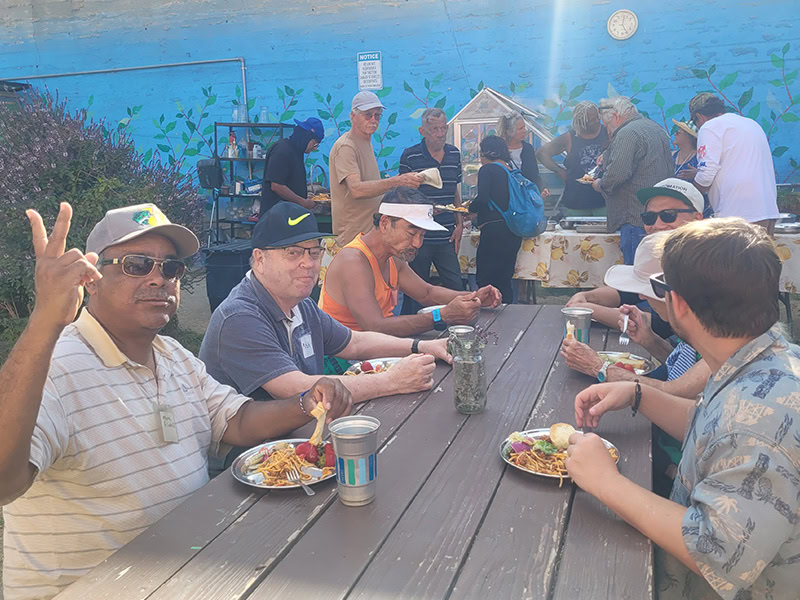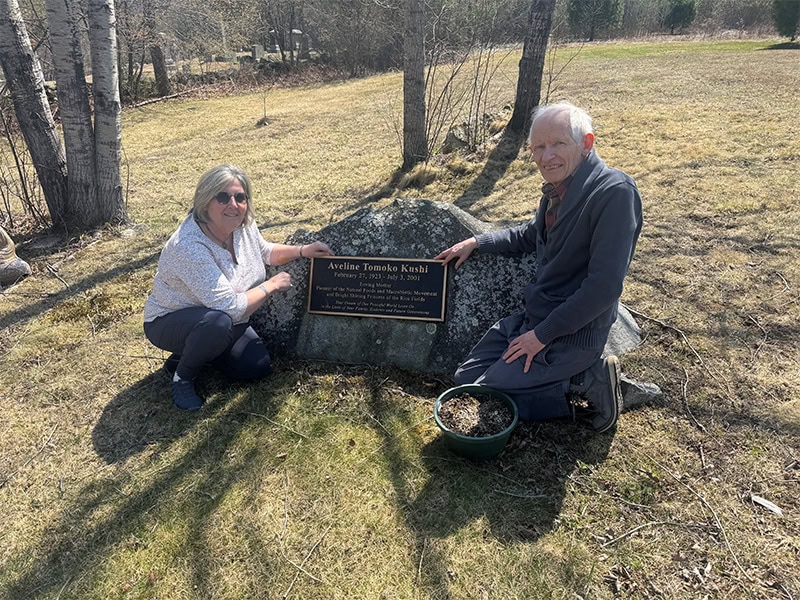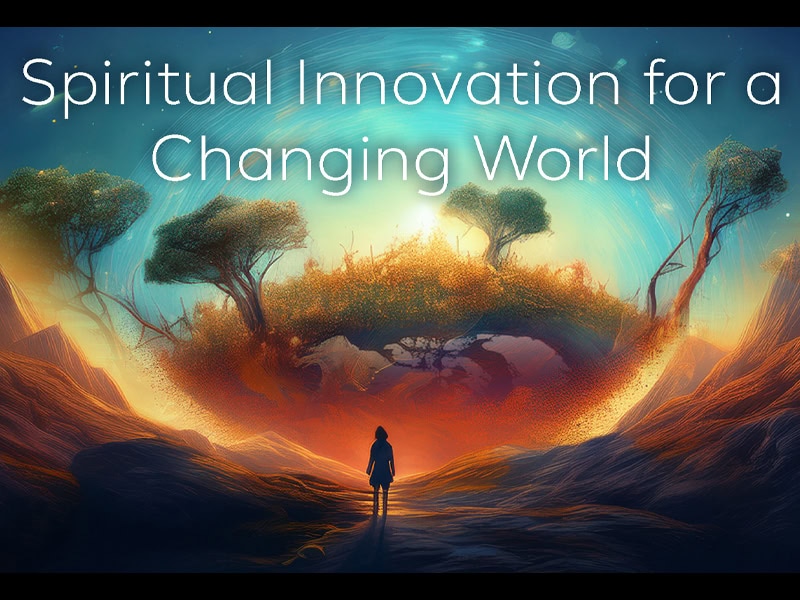Written by Jane Siebert
Dear Friends,
As we head into this new year of 2022 together, I feel the need for more hope. We are trying to plan an in-person convention for summer of 2022, after two virtual conventions, wondering where we will be in six months. Right now, churches are opening their doors for services with that tension that creeps up and makes us question if this is okay. It seems every time we pop our heads above this pandemic another whack-a-mole hits us back down in a hole.
I’m reading a book, a Christmas gift to myself, The Book of Hope: A Survival Guide for Trying Times by Jane Goodall and Douglas Abrams. She inspired my desire to live in Africa when I had just completed university nearly fifty years ago. My hope was not just to travel to Africa, but to live there. And my husband and I did for three years with the Peace Corps. I remember waking up in the middle of the night in the Congo under my mosquito netting, the feet of our bed in tin cans filled with water so the fire ants could not visit us in the middle of the night, which worked—most of the time. Yes, I would wake up with the deep silent darkness enveloping me and say out loud, “I’m in the middle of Africa—thank you, Jane Goodall.” It wasn’t anything like the lifetime Jane Goodall spent in Africa and around the world, but it certainly broadened the world view and theological view of this Kansas girl who had never traveled outside of the U.S.
I’ve read Jane Goodall’s books and the many books about her. I am always enthralled by her life, following her daring experiences and her patience to connect with our fellow primates. She went on to help protect them, free them from the science labs, and teach us about ourselves through the insight of our ties with chimpanzees and all of nature.
While Jane was tirelessly working to stop the killing of chimpanzee mothers and stealing their babies to sell on the black market in 1973, Ray and I were on a river supply boat traveling down the Congo River on a needed break. While I was out walking around the barges looking at the various levels of accommodations from tight cabins to open air mats on the decks, a man came up to me with a young chimp. The baby looked so forlorn. I reached out to hold him and he buried his head in my neck and hung on. The man asked if I wanted to keep him for the day and I quickly agreed. Ray and I talked about it, and we decided to pay for the chimpanzee and try to find a refuge for him when we landed, really having no idea what we might be getting into. The man came to get the chimp and said we could have him the next day for 200 Congolese dollars, which was a lot for Peace Corps volunteers. However, the next day we searched the boat and attached barges and never could find the man and young chimpanzee. We later found out that the ship had been raided overnight and anyone found with a chimp was taken off the boat and thrown in prison. To this day, I remember how much holding that chimp felt like holding my own child and how close we had come to real danger.
In The Book of Hope, co-authored by Douglas Abrams through personal interviews with Jane Goodall, they take on the worsening climate crisis, our global pandemic, and the overwhelming political divide to find the hope necessary to search for answers and how to move forward—both personally and globally—in dark times such as these.
The questions surrounding us right now are daunting. How can we stay hopeful in what seems like a hopeless time? How do we encourage our kids to sustain their own hope? What can we do? What should we do? What will we do?
When Doug asked, “What is hope?” it was evident Jane had thought a lot about hope, lived and spread hope, and knew what it felt like to almost lose hope. Hope is a part of her essence and being. She told him, “Hope is what enables us to keep going in the face of adversity. It is what we desire to happen, but we must be prepared to work hard to make it so. Like hoping this will be a good book. But it won’t be if we don’t bloody work at it.”
Jane continued, “…all hope does not require action, because sometimes you can’t take action. If you are in a prison cell where you’ve been thrown for no good reason, you can’t take action, but you can still hope to get out.” And in the next breath, “…in certain contexts (action) is essential. Take this dire environmental nightmare we are living in today. We certainly hope that it is not too late to turn things around—but we know that this change will not happen unless we take action.”
I found encouragement through Jane’s “Four Reasons for Hope: The Amazing Human Intellect, The Resilience of Nature, The Power of Young People, and The Indomitable Human Spirit.” Each reason for hope covers a chapter in their conversation, which was delayed with the sudden illness of Doug’s father, shutdowns with the pandemic, and travel restrictions causing their conversations to, appropriately, finish via Zoom.
Jane Goodall is an inspiring woman and now at age 87 is called “Virtual Jane” as she lectures and teaches and ignites hope in adults and children. Her message for all the readers of her book and all of us:
“…realize that we can win these wars, that there is hope for our future—for the health of our planet, our societies, and our children. But only if we all get together and join forces. And I hope, too, that you understand the urgency of taking action and each of us doing our bit. Please believe that, against all odds, we can win out, because if you don’t believe that, you will lose hope, sink into apathy and despair—and do nothing.
We can get through the pandemic. Thanks to our amazing human intellect, scientists have produced vaccines at record speed.
We should be so grateful for the incredible resilience of nature. And we can help the environment heal not only by means of the big restoration projects but as a result of our own efforts as we choose how to live our lives and think about our own environmental footsteps.
There is great hope for the future in the actions, the determination and energy of young people around the word. And we can all do our best to encourage and support them as they stand up against climate change and social and environmental injustice.
Finally, remember that we have been gifted not only with a clever brain and well-developed capacity for love and compassion, but also with an indomitable spirit. We all have this fighting spirit – only some people don’t realize it. We can try to nurture it, give it a chance to spread its wings and fly out into the world giving other people hope and courage.
Together we can. Together we will.”
Thank you, Jane Goodall, for helping me get in touch with my youthful optimism and hope and remembering when my generation of baby boomers were ready to take on the world; we did make a difference, but it is not over. We all have a continuing responsibility. Thank you for helping me restore my hope and reconnect with the work ahead. I have faith the indomitable spirit is the light and fire of the Divine Spirit, alive and well within us all.
With love and care and hope for 2022!
—Rev. Jane Siebert
Read the full issue of the January/February 2022 Messenger
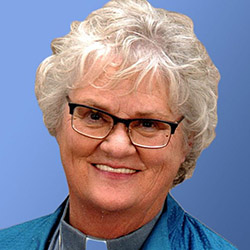
Meet Rev. Jane Siebert
Rev. Jane Siebert is the President of the Swedenborgian Church of North America.

